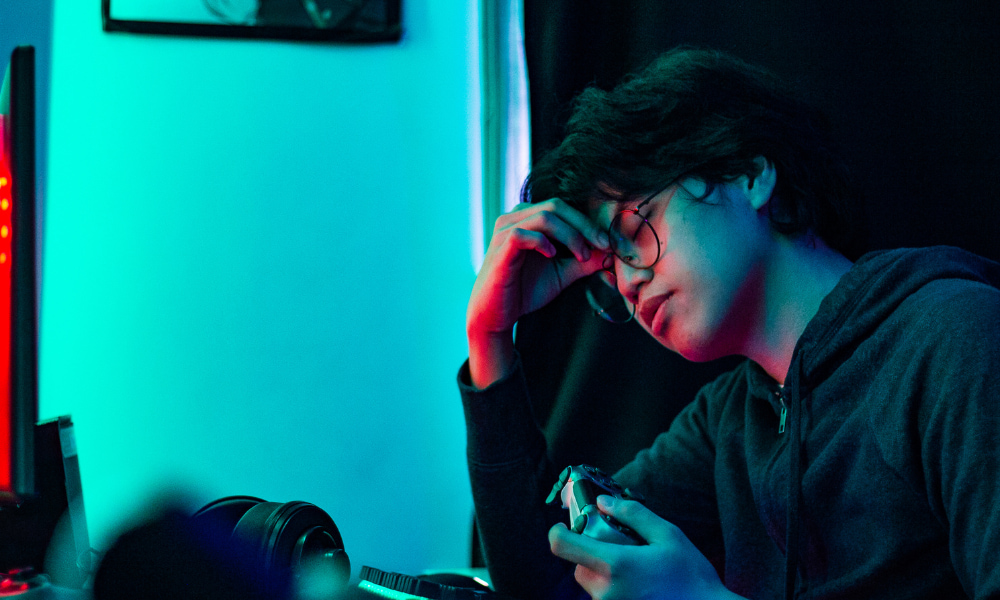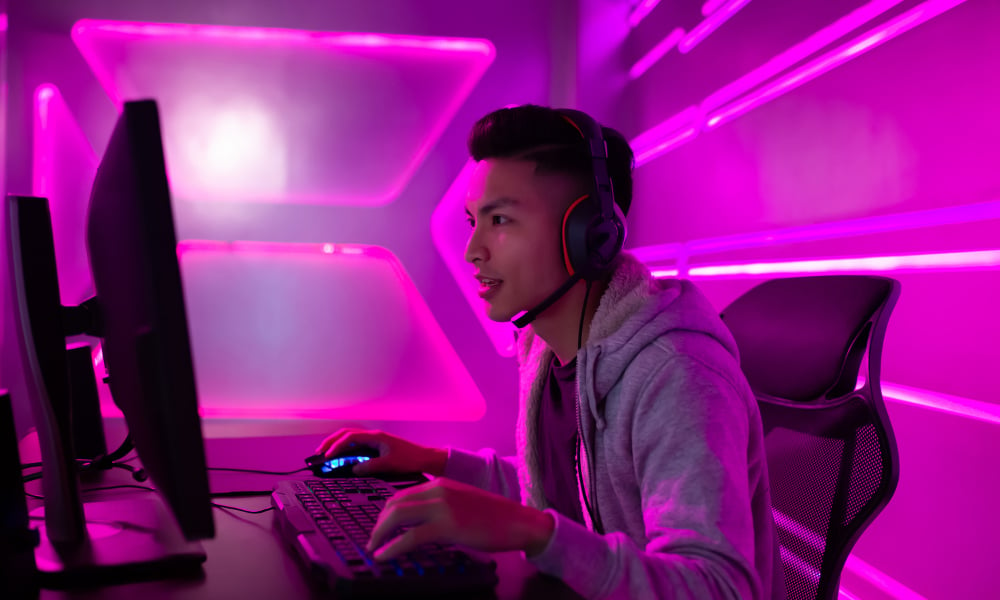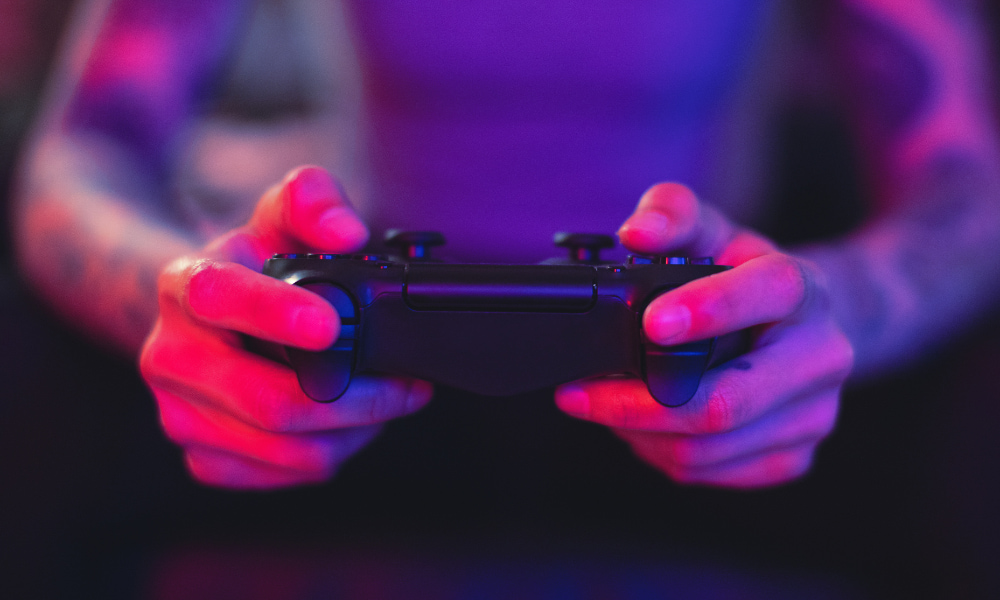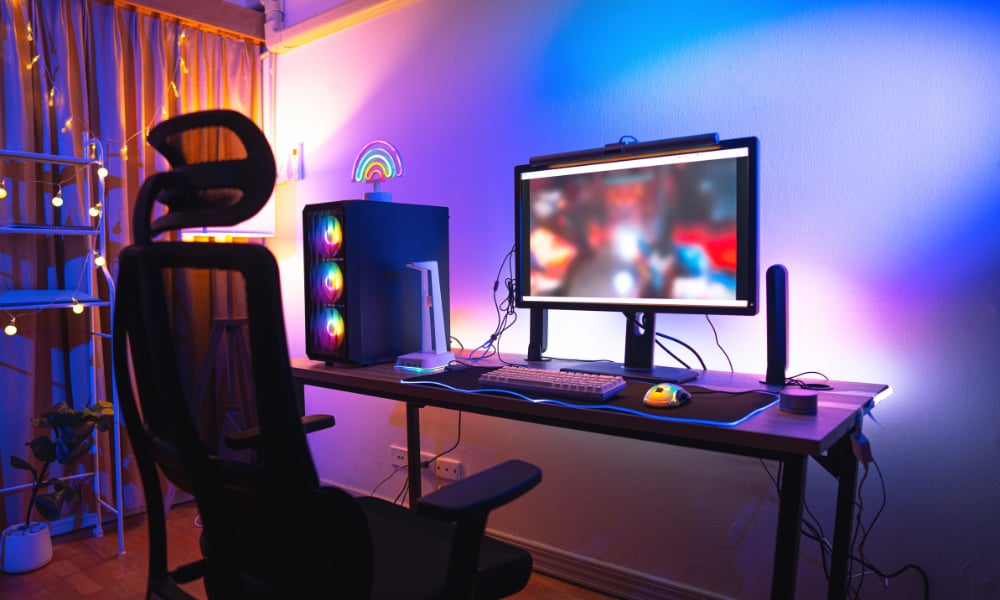Consejos
Cómo afrontar la frustración en los partidos de eSports
Aprende a superar la frustración de los esports con estrategias prácticas, rutinas de reinicio y consejos innovadores. Mejora tu concentración, comunicación y rendimiento en cada partida de esports, ya sea móvil o PC, con tácticas probadas.
Anuncios

Probablemente hayas sentido que se te acelera el pulso tras una dura derrota o un tiro fallado en un torneo de alto riesgo. Ese destello de frustración en los esports puede desestabilizar incluso a los jugadores más veteranos.
Los juegos competitivos generan presión y altas expectativas con cada clic, deslizamiento o movimiento. Gestionar las emociones no es solo una habilidad extra: es lo que te permite recuperarte, adaptarte y, en definitiva, mantenerte en el juego.
Si alguna vez has querido superar la frustración de los esports sin perder la concentración ni la ventaja competitiva, sigue leyendo. Las siguientes estrategias están diseñadas para jugadores que buscan mantener la calma cuando las partidas de esports se intensifican.
Detectar la frustración a tiempo cambia todo el partido
Reconocer las señales de frustración en cuanto aparecen te da una ventaja inmediata en juegos para móviles y consolas. Al detectar la frustración en los esports a tiempo, puedes actuar antes de que tu juego o tu estado de ánimo se deterioren.
Los jugadores pueden golpear el teclado, hacer comentarios bruscos o caer en pensamientos negativos. Presta atención a la respiración superficial, los puños apretados o la mandíbula apretada: estas son señales comunes durante los momentos de alta tensión en las partidas de esports.
Leyendo tus propias reacciones
Si notas que tus manos se tensan o que tu corazón late fuerte durante una partida difícil, es que tu cuerpo te está indicando frustración en los esports. Haz una pausa de cinco segundos, relaja y reinicia antes de tu siguiente movimiento.
Presta atención al volumen de tu voz: gritar o hacer comentarios sarcásticos en el chat significa que tu frustración empieza a apoderarse de ti. En lugar de eso, cambia a comentarios tranquilos y basados en hechos, como "Fallé mi tiro, concéntrate en la siguiente ronda".
Observa si sigues repasando errores del pasado. Este hábito te distrae de la toma de decisiones en tiempo real. Redirecciona tu atención a lo que puedes hacer en la ronda actual, no en la anterior.
Ver la frustración en los compañeros de equipo
Cuando un compañero suspira profundamente, escribe "lag otra vez" o deja de comunicarse repentinamente, está lidiando con la frustración de los esports. Anímalo a volver con palabras como "reagruparnos" o "reiniciar la siguiente jugada".
Los equipos que detectan cambios emocionales con antelación pueden ajustar sus estilos de comunicación. Frases breves y centradas en soluciones, como "rotar juntos la B", evitan que el grupo caiga en la culpa o el silencio.
Aprender a reconocer las señales verbales y físicas, tanto en uno mismo como en los demás, ayuda a todos a mantenerse comprometidos. Actuar con anticipación reduce la frustración y da ventaja a tu equipo sobre el oponente.
| Señal de frustración | Donde aparece | Solución inmediata | Qué practicar la próxima vez |
|---|---|---|---|
| Gritando a sus compañeros de equipo | Chat del juego, voz, gestos. | Silencio brevemente, cuente hasta 10 | Desarrollar guiones de respuesta neutrales |
| Repitiendo errores | Monólogo interno | Cambiar el enfoque al siguiente objetivo | Practica reinicios conscientes después de las rondas |
| Respiración superficial | Tensión física | Tome tres respiraciones lentas | Utilice controles de respiración en cada partido |
| Acciones apresuradas | Mecánica del juego, velocidad de entrada | Pausa, restablece el ritmo | Practica movimientos lentos y deliberados |
| Culpar al retraso o al RNG | Excusas en el chat | Acepta lo que es incontrolable | Informe sobre problemas técnicos después del partido |
Crear un plan de reinicio previo al partido ayuda a mantener las emociones bajo control
Desarrollar una rutina de preparación mental te proporciona un ancla emocional antes de cada partido. La constancia limita la frustración en los esports al hacer que la calma sea tu valor predeterminado, no un golpe de suerte.
Las investigaciones en psicología deportiva confirman que las rutinas, por más simples que sean, le indican al cerebro que es momento de concentrarse y responder con aplomo cuando las cosas se ponen difíciles.
Lista de verificación breve previa al partido
Empieza por sentarte cómodamente y respirar profunda y lentamente cinco veces. Revisa tu último partido buscando solo uno o dos ajustes específicos; no te culpes. Visualízate realizando jugadas con confianza durante los primeros tres minutos del partido.
Elige una sola frase como "reinicia, reenfócate, juega a mi manera" para repetirla si las emociones se intensifican. Mantén este plan, incluso si te sientes presionado por los lobbies o los compañeros de equipo.
- Respira profundamente cinco veces: esto indica a tu cerebro y a tu cuerpo que deben reiniciarse antes de un partido.
- Verifique su postura: erguida, relajada, con las manos sueltas sobre el teclado o la pantalla, no apretadas.
- Repite una frase que te ponga a tierra: esto interrumpe los pensamientos en espiral y centra tu mentalidad.
- Revise su plan de juego: concéntrese en los objetivos tácticos, no en las preocupaciones sobre ganar o perder.
- Establezca su tono de comunicación: planifique utilizar un lenguaje neutral cuando se sienta frustrado, evitando el sarcasmo.
Esta lista de verificación rápida convierte la preparación en un acto deliberado, no en una apuesta, lo que reduce las probabilidades de que la frustración de los deportes electrónicos lo descarrile al principio de la ronda.
Escenario: Preparación con compañeros de equipo
Reúne a tu equipo antes de hacer fila. Comparte tu rutina de reinicio e invita a otros a usarla. Después de una ronda difícil, recuérdense mutuamente: "Plan de reinicio, mentalidad de próxima ronda". Observen el tono del grupo y ayúdense mutuamente a mantener el rumbo.
- Acuerden una regla de no culpar a nadie: cada vez que alguien comience a culpar a otro, hagan una pausa y cambien la conversación.
- Práctica de llamadas en los partidos: señale su frustración con una palabra clave para que los compañeros de equipo puedan ofrecer un recordatorio para ponerse a tierra.
- Establezca un saludo positivo al comienzo de cada juego: “GLHF” o “tengamos una buena sesión” para crear un impulso positivo.
- Define señales para tomar descansos rápidos: levanta una mano, escribe una palabra en el chat, para que todos sepan que deben reiniciarse juntos.
- Realicen un informe posterior al partido en conjunto: compartan algo aprendido y algo que guardaron atrás, lo que ayudará a aclarar la frustración persistente de los deportes electrónicos.
Los compañeros de equipo que normalizan los reinicios y los guiones positivos se ayudan mutuamente a evitar la frustración, lo que genera una mejor cohesión y claridad del equipo en el calor de la competencia.
Los micro descansos rutinarios a mitad del juego mejoran la concentración cuando aumenta la apuesta
Incorporar microdescansos intencionales en cada partida ayuda a los jugadores a reiniciarse y gestionar la frustración de los esports sobre la marcha. Estas pausas rápidas mantienen la atención y evitan la frustración por pequeños contratiempos.
Practica micro-descansos sin importar el marcador, ya sea que estés ganando o buscando una remontada. Entrénate para reiniciarte después de cada cambio de ronda, derrota o jugada difícil.
Uso de micro-rupturas después de pérdidas
Tras perder una ronda, silencia tu micrófono y tómate un descanso de siete segundos. Aparta la mirada de la pantalla, gira los hombros y respira lentamente dos veces. Reconoce el error y luego vuelve a concentrarte en el partido que tienes por delante.
Si la frustración persiste, sacude las manos para liberar la tensión. Repítete: "Fallé, pero mi concentración sigue siendo nítida". Los reinicios físicos le indican al cerebro que es hora de avanzar.
Al regresar de un microdescanso, anuncie su próximo objetivo pequeño a su equipo: "aseguraremos el control medio primero", en lugar de insistir en la ronda anterior.
Entre mapas o modos de juego
Aprovecha las transiciones a mitad del partido para dejar atrás la frustración de los esports. Ponte de pie, estírate y bebe agua. Recuerda a tus compañeros: «Nuevo juego, nueva mentalidad». Define un ajuste para probar en el siguiente mapa.
Da señales claras a tus compañeros cuando necesites un pequeño reinicio: di "pausa rápida" o escribe un emoji de reinicio en el chat. Normaliza este comportamiento para que el grupo mantenga la calma, incluso cuando los partidos se intensifican.
Los microdescansos constantes en equipo fomentan la resiliencia. Te resultará más fácil recuperarte durante los torneos o las partidas clasificatorias cuando los partidos te lleven al límite emocional.
Cambio de mentalidad: de la ira a la resolución de problemas en tiempo real
Cambiar de culpar a buscar soluciones te permite afrontar la frustración de los esports con acción. Entrénate a preguntarte "¿Cuál es mi siguiente jugada?" en lugar de "¿Por qué metí la pata?" cuando la presión aumenta.
Este cambio de mentalidad interrumpe las espirales emocionales y devuelve la atención a las exigencias actuales del juego, mejorando tanto el rendimiento como el disfrute.
Reformular errores con guiones
Cuando las emociones se disparan, utiliza guiones como "bien, adapta la próxima ronda" o "me perdí ese ángulo, ¿cuál es mi próxima lectura?" para pasar del enojo a la planificación táctica al instante.
Si un compañero se culpa a sí mismo, modele un replanteamiento: "Pasa, en la siguiente ronda hay una nueva oportunidad". La coherencia en el diálogo interno mantiene alta la moral y evita que la ira se propague por todo el equipo.
Si detectas pensamientos negativos, etiquétalos como "analizar" en lugar de "atacar". Retoma frases como "¿cuáles son mis opciones inmediatas?" para una reflexión productiva.
Resolución de problemas bajo estrés
Tras varios errores, verbaliza un cambio concreto: "Voy a despejar esa esquina antes" o "rotaré más rápido en defensa". Este pensamiento fundamentado genera progreso y limita la frustración en los esports.
Usa un bloc de notas para anotar un solo ajuste después del partido. Revisar los detalles te ayuda a buscar el crecimiento, no la perfección.
Si la comunicación del equipo se calienta, convoque un "tiempo de reinicio" y proponga un enfoque táctico: "Repasemos el tiempo de la utilidad juntos en el sitio". Mantener al grupo enfocado en la mejora transforma la energía de la frustración en impulso.
Reenfocar tus sentidos para interrumpir físicamente la frustración
Las acciones físicas pueden aliviar la frustración en los esports tras repetidas derrotas o momentos difíciles. Activar los sentidos te ayuda a desconectar de los nervios y te conecta con el presente durante una partida en móvil o computadora.
Tenga a mano herramientas sencillas: una pelota antiestrés, agua fría o música alegre para salir de un mal estado mental entre rondas o partidos.
Involucrando movimiento y respiración
Levántate rápidamente y estira los brazos o las piernas después de una ronda frustrante. Esto reduce la tensión. Un guion práctico es: «Muévete, respira, reinicia, listo para la siguiente ronda». Deja que el movimiento corporal marque el cambio de mentalidad.
Durante los juegos móviles, cambia el agarre o toca la pantalla con la mano no dominante como recordatorio físico para mantener la concentración. Esto rompe la conexión automática entre la frustración y las decisiones rápidas y emocionales.
Combina el trabajo de respiración: tres inhalaciones profundas y lentas seguidas de una exhalación completa. Deja caer los hombros después de cada respiración, liberando rápidamente la tensión física y mental.
Conexión a tierra con señales ambientales
Mira un póster, una pegatina o un objeto cerca de tu pantalla. Nombra tres cosas que veas, dos sonidos que oigas y una cosa que sientas; notarás que tu energía mental se estabiliza al instante.
Bebe un sorbo de agua fría y siente la sensación. Esta rápida acción interrumpe la frustración y te da un nuevo comienzo sin moverte de la silla.
Cuando el estrés aumente, toca una canción corta y conocida entre rondas. Concéntrate en la melodía, no en el historial de partidos, para interrumpir patrones de pensamiento destructivos y restablecer el rendimiento.
Aceptar la revisión, no el autojuicio, después de que terminan los partidos
Considerar la revisión posterior al partido como una herramienta de aprendizaje reduce la frustración que persiste entre partidas. Separa los errores de habilidad de las críticas personales para ganar confianza con el tiempo sin perder la motivación.
Reemplaza “Fracasé” por “¿Qué aprendí?”. Crea una rutina de revisar videos, marcadores o puntos de decisión para lograr un crecimiento concreto en lugar de desahogarte.
Rutinas de revisión específicas
Después de cada sesión, elige dos clips: uno exitoso y otro fallido. Anota en cada uno: "Decisión correcta" o "Incumplimiento del tiempo: clave para la próxima sesión". Deja de revisar después de diez minutos para evitar un análisis excesivo.
Reúnanse con sus compañeros y comiencen la retroalimentación con algo que les haya gustado de su juego. Ofrezcan ajustes específicos, como "buena comunicación; ahora vamos a mejorar las repeticiones". La gratitud, combinada con detalles, motiva a mejorar.
Convierte la revisión en progreso: «Aprende, ajusta, avanza». Este ritmo corta el ciclo de frustración de los esports y convierte cada partida en combustible para mejorar tus habilidades.
Dejando atrás el arrepentimiento
Reconoce tu frustración diciendo "esa pérdida dolió", pero no culpes a nadie. Di "una nueva oportunidad la próxima vez" y establece tu objetivo para la siguiente sesión: una señal de enfoque, no la perfección.
Si te encuentras revisando las estadísticas obsesivamente, establece una regla: revísalas una vez que terminen los partidos y luego cierra la aplicación. Esto evita la espiral y fomenta el equilibrio.
Los jugadores que siguen adelante con un propósito se mantienen motivados, evitan el agotamiento y aportan un enfoque renovado a cada partido.
Tu plan de juego para jugar eSports sin frustraciones
Las tácticas adecuadas para gestionar la frustración en los esports te permiten controlar incluso los partidos más difíciles. Cada sección ofrece ejemplos prácticos y rutinas que puedes usar para jugar con resiliencia y claridad.
Los jugadores que detectan la frustración a tiempo, se preparan con una rutina de reinicio, incorporan microdescansos y enmarcan los errores como puntos de aprendizaje mantienen una mayor concentración. Se adaptan rápidamente y mantienen un alto rendimiento, incluso cuando los partidos se ponen tensos.
La frustración en los esports no tiene por qué influir en tu estado de ánimo, tus resultados ni tu pasión por los juegos competitivos. El enfoque adecuado convierte cada derrota en un paso adelante y cada victoria en una experiencia más gratificante. Reinicia, revisa y sigue progresando en cada sesión.

Consejos para elegir el mejor juego de mundo abierto para ti
Encuentra el juego de mundo abierto perfecto para tu estilo de juego con consejos sobre exploración, sistemas de progresión, accesibilidad y funciones inmersivas para juegos móviles.
Tendencias

Consejos sobre cómo personalizar tu equipo para una mejor experiencia de juego
Mejora tu experiencia de juego móvil personalizando tu equipo para obtener mejor precisión, comodidad y rendimiento.
Continúe Leyendo
Cómo usar mods y hacks de forma segura en tus juegos
Descubre cómo usar mods y hacks de forma segura en tus juegos. Sigue estos consejos para proteger tu dispositivo, evitar baneos y mejorar tu experiencia de juego.
Continúe Leyendo
Los mejores juegos móviles para jugar sin conexión en cualquier momento
Descubre juegos móviles sin conexión confiables para una diversión sin interrupciones, ya sea en tu camino al trabajo o de viaje. Disfruta de una experiencia de juego fluida, sin necesidad de internet.
Continúe LeyendoTambién te puede interesar

Los 5 mejores juegos de carreras para móviles que no te puedes perder por su emocionante jugabilidad
¡Mejora tus habilidades en los juegos de carreras para móvil! ¡Domina los controles, mejora los coches y compite a nivel mundial por el liderato!
Continúe Leyendo
Juegos deportivos de realidad virtual: la nueva frontera para los jugadores
Experimente la emoción de los juegos deportivos de realidad virtual con consejos para maximizar la inmersión, mejorar el rendimiento y disfrutar de los beneficios del fitness desde casa.
Continúe Leyendo
Cómo los juegos móviles se están apoderando del mercado global
El mercado de los juegos móviles está creciendo rápidamente y se adapta a los estilos de vida modernos con experiencias rápidas y atractivas para jugadores de todo el mundo.
Continúe Leyendo